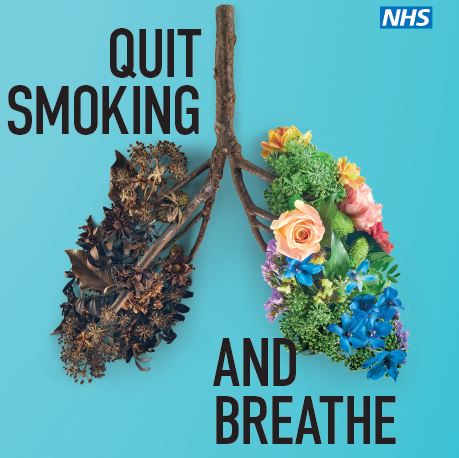COVID-19 and smoking
During this winter period, taking action to protect and improve your health is particularly important.
Smoking causes damage to the lungs and airways and harms the immune system, reducing your ability to fight infection. Smoking is also very harmful to the cardiovascular system (the heart and the blood vessels that carry blood around your body), which has many negative impacts on health including increased risk of heart attack and stroke.
COVID-19 is a disease caused by a respiratory virus, SARS-CoV-2. People who smoke generally have an increased risk of contracting respiratory infection and of more severe symptoms once infected (for the specific risk of COVID-19, see below).
Stopping smoking will bring immediate benefits to your respiratory and cardiovascular health, including if you have an existing smoking-related disease
In this video, Dr Nick Hopkinson, Reader in Respiratory Medicine at Imperial College London and Chair of ASH explains the relationship between smoking and COVID-19 and the key messages for smokers:
Exposure to second-hand smoke
People who breathe in second-hand tobacco smoke are also at generally increased risk of harm to their lungs and hearts. Children are especially at risk as they have less well-developed airways, lungs and immune systems.
While there is no specific evidence of an increased risk of contracting COVID-19 from breathing in second-hand smoke, as always people who smoke should avoid exposing others to second-hand smoke.
What are the risks of shisha smoking?
Shisha smoking carries all the health risks of smoking, and sharing the mouthpiece greatly increases the risk of spreading COVID-19. PHE strongly advises against sharing any smoking devices.
Vaping and COVID-19
E-cigarettes (vapes) can be an effective aid to stopping smoking and staying smoke free. The evidence on the health risks of e-cigarettes is still developing, however, it’s clear that vaping is far less harmful than smoking.
Visit the NHS quit smoking website for information and advice on using e-cigarettes to help you stop smoking.
What do we know about COVID-19 risks for vapers?
It is unknown what effect vaping may have on your risk of infection with the COVID-19 virus, or on how it may affect the severity of illness from COVID-19. To reduce the risk of infection with the COVID-19 virus, PHE strongly advises against sharing vaping devices with anyone.
What are the risks of passive exposure to e-cigarette vapour?
There is little evidence of harm to the health of bystanders from breathing in second-hand e-cigarette vapour. There is currently no evidence of an increased risk of contracting COVID-19 from breathing in second-hand e-cigarette vapour. However, in the absence of specific evidence, we recommend that vapers err on the side of caution and avoid breathing out clouds of vapour in the presence of others.

